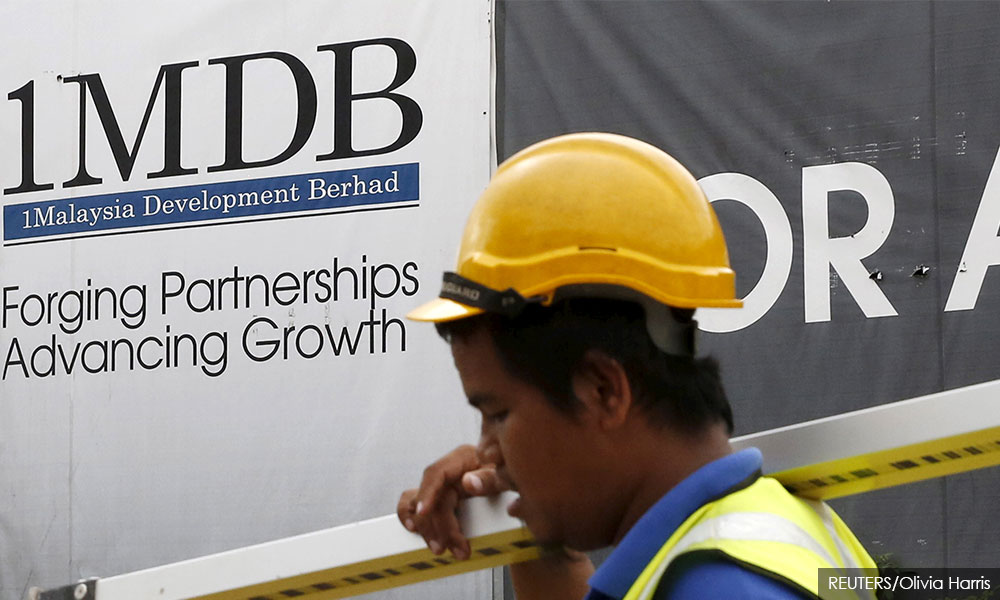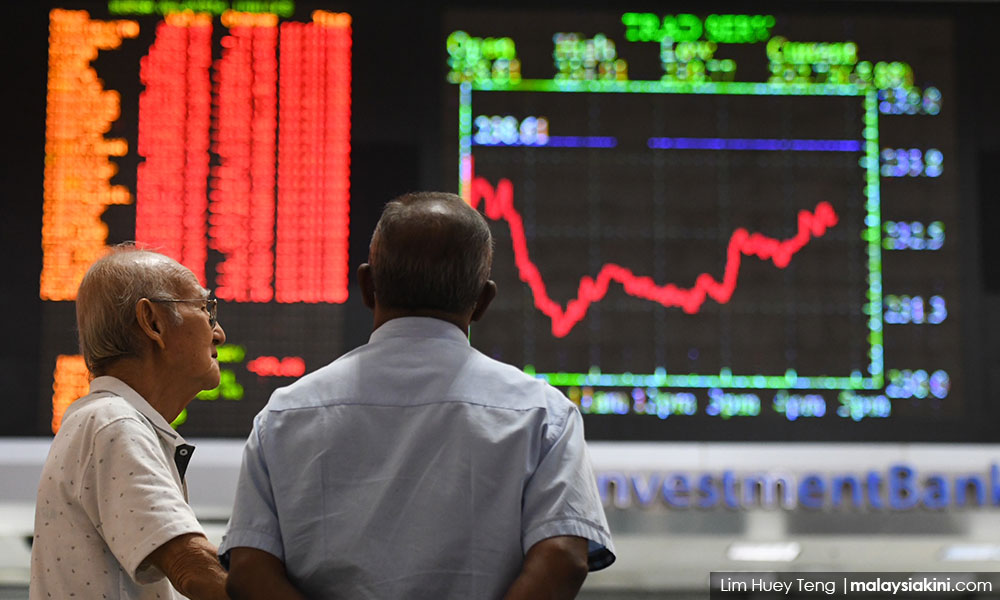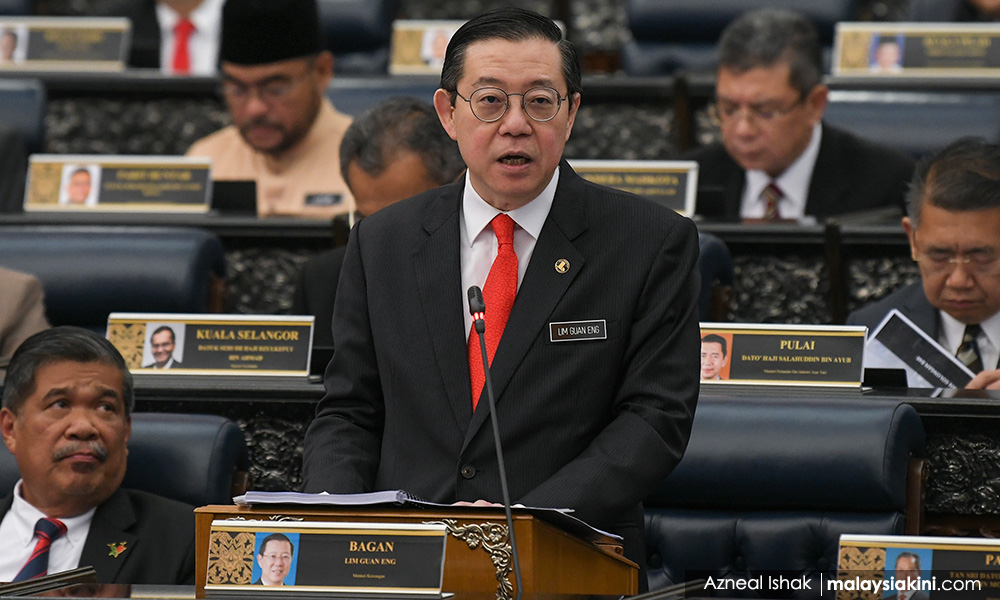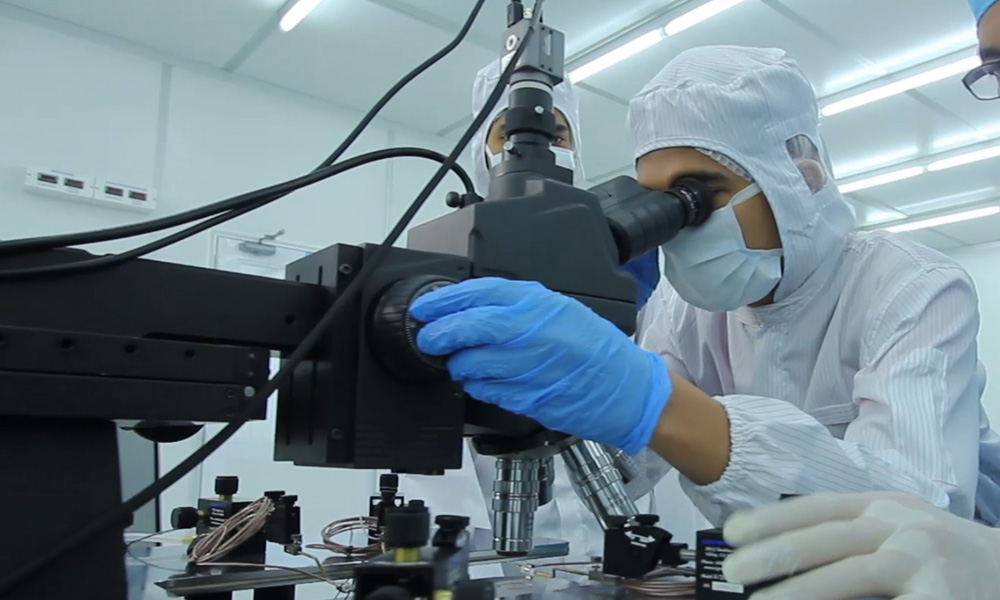MP SPEAKS | Malaysia has had great successes in industrialising, beginning in the 1970s. This transformation has made an agro-based Malaysia into an industrial sweatshop and smartshop of the region.
Today, places like Penang, the Klang Valley and southern Johor are regional manufacturing hubs fulfilling global demand, hosting many Fortune 500 marquee brands. These hubs contributed to the rapid rise of Malaysia, especially in the 1990s when we were considered as one of the Asian economic tigers.
But something happened along the way. By the early 2000s, Malaysian manufacturing, especially the electrical and electronics (E&E) sector began to hollow out due to the opening up of China and the emergence of new economies with lower cost structure.
The hollowing out effect has led to the premature deindustrialisation of Malaysia. Manufacturing peaked in early 2000s at approximately 30 percent of our GDP. It has declined to 22 percent as of last year. Low-value services are expanding in place of manufacturing, while within the manufacturing sector itself, high-tech high-value manufacturing growth is stagnating.
The deindustrialisation has been accompanied by slower economic growth. From 1988 to 1997, Malaysia recorded an average GDP growth of 9.3 percent annually. But since 2000, it has slowed down to 5.1 percent only. This is of great concern to Malaysia, which aspires to graduate into the ranks of high-income developed economies.
However, that alone would not have jeopardised our Vision 2020 of emerging as a developed nation. Vision 2020 was in fact derailed by the 1MDB scandal that, according to the US Department of Justice, turned Malaysia into a global kleptocracy at its worst, and ensnared many financial institutions in countries across the globe complicit in the US$25 billion financial scandal, including Goldman Sachs.

There is still hope. Malaysians took charge in last year’s epochal general elections when they courageously threw out the kleptocratic and corrupt government for the first time in 61 years for a democratic and clean administration.
Our vision of becoming a developed nation may have been set back by the 1MDB scandal, but the painful process of rehabilitating and restoring our finances will put us back on track, both fiscally and economically. The new government will pursue reparation payments against those involved.
The question remains, how then do we overcome the great challenge of turning around Malaysia from a global kleptocracy to a normal boring democracy?
Trade war
Our task is made much harder by the changing global order, especially the trade war and breakdown of a multilateral international framework in favour of selfish unilateralism. Under the previous open global trade framework, the conventional wisdom was to move all production to China and take advantage of the country’s low-cost structure and its abundance of labour.
The trade war between China and the United States is upending that wisdom and highlights the importance of not putting your eggs into one basket. This lesson in diversification will be remembered for a very long time to come, and it is permanently reorienting the entire global supply chain, causing a seismic shift in trade, capital flows and technology.
Various firms today are searching for safe havens to avoid being caught in the trade war between China and the United States. Several Southeast Asian countries, including Malaysia, have begun to experience increased foreign investment resulting from trade and investment diversion caused by the trade war.

Approved foreign investment across all sectors in Malaysia have roughly doubled from RM25.1 billion (US$6.0 billion) in the first half of 2018 to RM49.5 billion (US$11.8 billion) during the first half of this year. A majority of the approved investment was within the manufacturing sector, with the US being the biggest source of approved investment worth RM11.7 billion (US$2.8 billion), followed by China with RM4.8 billion (US$1.2 billion).
China is Malaysia’s biggest trading partner and the fact that it comes out second behind the US demonstrates the importance of US investment in Malaysia.
Malaysia has been lucky and is exhibiting resilience amid external turbulence. In the second quarter of 2019, our GDP growth accelerated to 4.9 percent, from 4.5 percent in the earlier quarter. This makes Malaysia among the few countries in the world that experienced faster GDP growth during the period.
Nevertheless, I wish to stress, despite the short term gains, that in the long run there are no winners in trade wars. Only losers. If the trade tension persists and worsens, the global pie would shrink. No amount of trade and investment diversion would suffice to counter the potential loss in global output.
The IMF downgraded its 2019 GDP growth forecast to 3.0 percent recently, versus its earlier projection of 3.9 percent. There is still some hope when the IMF projects that global growth will improve to 3.4 percent next year.
Reindustrialising Malaysia
Malaysia sees the permanent reorientation of the global supply chain as a golden opportunity to attract new investment and reverse our premature deindustrialisation. I believe the entrepreneurial state has an important role here. We seek to draw an industrial policy to focus Malaysia’s reindustrialising efforts, which requires necessary selective state interventions to prioritise investment in strategic sectors, and structure incentives around specific economic and social goals.
The present political consensus favours free markets, trade liberalization and deregulated finance. However, for a small open country like Malaysia, markets can be free, but must be fair. Trade liberalization must be based on a regulated multilateral global order protecting smaller countries against unfair trade practices, and deregulated finance in the fintech era cannot allow unscrupulous investors and money speculators from enriching themselves at the expense of sovereign control over our own economy and monetary system.
Budget 2020 and Industry 4.0
It is in this context that I tabled Malaysia’s 2020 Budget earlier this month. Why is the digitalisation of the economy important?

Unlike 10-40 years ago when industrialisation required an ample supply of skilled workers, good physical infrastructure, as well as a set of consistent rule of law, there is a new dimension that needs to be considered today. It is about data and its uses.
Indeed, the nature of industry has evolved since Malaysia first industrialised back in the 1970s. For instance, it is no longer enough to simply build a television, a phone or a car. You need to design smart software powering the devices in order to participate in the high-value supply chain. For Malaysia’s reindustrialisation exercise to be successful, we need to take Industry 4.0 technology into our embrace.
Realising this, Malaysia has put in place its national Industry 4.0 policy since last year, identifying 5 sectors to prioritize in terms of Industry 4.0 technology implementation. The sectors are E&E, machinery & equipment, chemical, medical devices and aerospace. These sectors cover pharmaceuticals, among others.
Generally, Malaysia is upgrading our digital backbone by investing RM21.6 billion (US$5.2 billion) in our National Fiberisation and Connectivity Plan (NFCP) from 2019 to 2023. This will widen the coverage and raise the speed of broadband internet in the country, while providing Malaysians with high-quality internet services at affordable prices.
We need the private sector to lead growth. This is where the entrepreneurial state comes in with a comprehensive 4P partnership between the public sector, private sector, professionals and people to maximise the benefits of the NFCP.
When the NFCP is completed by 2023, we believe Malaysia’s digital backbone will be fully ready to support 5G implementation widely. This will give Malaysia the first mover advantage in the region to reindustrialise faster. Truly, the NFCP will be the big enabler for wider and deeper adoption of Industry 4.0 technology in Malaysia.

But we are not waiting 5 years. There is other groundwork to be done. We are already testing 5G technology in Malaysia. And the 2020 Budget has measures aiding Malaysian companies to digitalise, and enable them to become more productive by adopting new technology.
We are providing direct incentives worth more than RM21 billion (US$5 billion) over 5 years for SMEs, large local companies and even multinational corporations to raise the productivity of the Malaysian economy through investment in new technology.
Even from last year, this Government provided large funds, either in terms of loan guarantees or grants worth about RM10 billion (US$2.4 billion) to encourage digitalisation and the adoption of IR4.0 technology like artificial intelligence, automation, big data and robotics among Malaysian businesses.
Not to forget, we are preparing the regulatory framework to enable the establishing of virtual banking by, hopefully, 2020. This will further modernise our banking system, reduce cost and enable inclusive growth.
We need to explore a regulatory guillotine to facilitate digitalisation of the economy faster, especially when it comes to unnecessary time-consuming regulations and formalities, without losing sight of the need for shared prosperity.
If done right, a regulatory guillotine could create more high-paying jobs than the desk jobs it destroys. At the same time, governments would not want to lose sovereign control, and we are getting input from industry players on how to do it best.
Disruption and shared prosperity
The introduction of new technology as significant as Industry 4.0 will create severe disruption to any economy. The World Bank projects 75 million jobs worldwide would be lost due to automation. Many of these jobs would not be replaced.
Malaysia is experiencing a transition into the Industry 4.0 era and we want to manage the transition well. That is why we have unveiled the shared prosperity agenda. Growth alone is not enough. We must ensure the fruits of economic growth can be shared meaningfully across all segments of our society. Societal tensions and street protests across the world are proof enough of the importance of shared prosperity. People need a reason to believe they have a fair stake in national economic growth.

In the 2020 Budget, we have a massive new job programme called Malaysians@Work where we target to spend RM6.5 billion (US$1.6 billion) over 5 years to create 350,000 new jobs across 5 years for youth, unemployed graduates and women, while reskilling or upskilling workers towards technical and vocational education and training (TVET). Malaysians@Work is a two-prong approach that raises the incentives for Malaysians to work, and reduces the hiring cost for employers employing Malaysians.
The digital gap
Shared prosperity must keep in mind progress made in digital payments, as well as digital currencies, and the digital divide it creates. Barriers to access must be lowered to make our digitalisation process inclusive. I would like to stress, it is about availability, accessibility and affordability.
To close the gap, Malaysia is adopting innovative methods to hasten the digitalisation of payments in the country as the first step towards a cashless society. Malaysia will be providing RM450 million worth of digital stimulus to all Malaysians aged 18 years and above earning below a certain income threshold in January and February 2020. This programme works through a one-time electronic cash transfer to qualified Malaysians via their e-wallet.
A multilateral approach is crucial in making the digital payments and currencies fair and reliable. We can ill-afford to have the digital space dominated by few large players, when their interest may not align with public interest. Any expansion of the digital economy must not lead to a loss of sovereign control.
Last week, I chaired a meeting in conjunction with the 2019 World Bank-IMF annual meeting in Washington DC where a small Pacific island-nation expressed concerns over how digital payments threatened national financial stability and their control over monetary policy. Digital payments finance local transactions without having the corresponding money passing through the domestic economy.
This means resources are being extracted out of the domestic economy without benefiting the local population. Worryingly, the government responsible for maintaining various public infrastructure – be it ports, roads and utilities, including the fibre optics network that makes online transaction possible in the first place – are deprived from tax revenue needed to maintain a healthy society.
Malaysia is big enough to address this problem effectively so far, but there will come to a point when countries have to work together at the global level to ensure the digital economy works for the people, and not for a few multinational corporations. At the end of day, we must remind ourselves that the economy is about individuals and societies, and the digital space is only a tool to improve our lives.
There is still a long way to go, but I think Malaysia is making good progress in digitalising our economy and enabling the adoption of Industry 4.0 technology, while closing the digital gap. To close the gap, the digital economy must adhere to the 3As of availability, accessibility, affordability of these resources. This is the only way to make the digital economy inclusive and improve our livelihood together.
LIM GUAN ENG is finance minister and MP for Bagan.The above is a speech made at the University of California at Berkeley on Oct 21, 2019..
The views expressed here are those of the author/contributor and do not necessarily represent the views of Malaysiakini.

